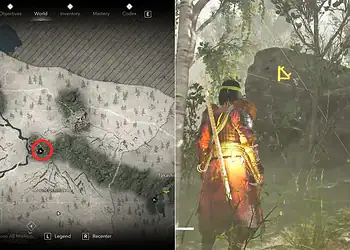IIT Bombay Ends Caste Data Collection!
In a groundbreaking move that’s sending ripples through India’s premier educational institutions, the Indian Institute of Technology Bombay (IIT Bombay) has officially discontinued its practice of collecting caste information for campus placements. This decision, effective from 2024, marks a significant shift in the institute’s approach to student recruitment and has ignited a crucial conversation about equality and fairness in India’s higher education system.
Table of Contents
The Revelation: IIT Bombay’s Acknowledgment
Following a notice from the National Commission for Scheduled Castes (NCSC), IIT Bombay has come forward with a startling admission. In a letter responding to allegations raised by Dheeraj Singh, an IIT-Kanpur alumnus, the institute confirmed that until the academic year 2023-24, it had indeed been collecting caste-related information from students during the placement process.
“Our placement office previously collected category details to provide to Public Sector Undertakings (PSUs) upon request,” stated the letter from IIT Bombay’s registrar to the NCSC. “However, this practice has been discontinued from 2024 onwards.”

The Catalyst: A Complaint of Discrimination
The revelation came in response to a complaint filed by Dheeraj Singh, who raised concerns about the mandatory disclosure of caste and Common Rank List (CRL) rankings during placement registrations. This practice, according to Singh, potentially exposed students to discrimination based on their caste backgrounds.
“It is an open secret that several private sector recruiters continue to ask for Joint Entrance Examination (JEE) category ranks during interviews,” Singh pointed out. “This is worrisome as students fear being rejected based on their caste or category backgrounds.”
The Change: A Step Towards Equality
IIT Bombay’s decision to halt the collection of caste data represents a significant step towards creating a more equitable recruitment environment. The institute clarified that moving forward, when PSUs hire students for reserved positions, their personnel will handle the verification of caste-related documents directly, without involving the placement office.
This change not only addresses the immediate concerns raised in the complaint but also sets a precedent for other educational institutions across India. It challenges the long-standing practice of caste-based profiling and moves towards a more merit-based recruitment process.

The Implications: A Broader Impact
The discontinuation of caste data collection at IIT Bombay could have far-reaching implications:
- Fairer Recruitment Process: By removing caste information from the initial stages of recruitment, the focus shifts more towards students’ skills and academic achievements.
- Reduced Discrimination: The change may help mitigate unconscious biases that could influence hiring decisions.
- Increased Confidence: Students from marginalized communities may feel more confident participating in placement processes without the fear of caste-based discrimination.
- Pressure on Other Institutions: This move by IIT Bombay could encourage other prestigious institutions to review and revise their placement practices.
The Road Ahead: Challenges and Opportunities
While IIT Bombay’s decision is a positive step, it also raises questions about how to balance affirmative action policies with the need for a discrimination-free recruitment process. The challenge lies in ensuring equal opportunities for students from marginalized communities while maintaining a fair and transparent system for all.
As this new policy takes effect, it will be crucial to monitor its impact on placement statistics and student experiences. Will it lead to more diverse hiring outcomes? How will it affect students who previously benefited from reservation policies in PSU recruitments?
A Call for Systemic Change
Dheeraj Singh, the complainant who brought this issue to light, emphasizes the need for broader reform. “The government must put an end to such discriminatory practices,” he asserts. This call to action extends beyond IIT Bombay, challenging the entire higher education system in India to reevaluate its approach to student placements and equal opportunities.

Conclusion: A New Chapter in Campus Recruitment
IIT Bombay’s decision to stop collecting caste data for placements marks a pivotal moment in the ongoing struggle for equality in India’s education system. It represents a shift towards a more inclusive and fair recruitment process, setting a powerful example for institutions across the country.
As we move forward, it’s clear that this is just the beginning of a larger conversation about fairness, equality, and merit in higher education and employment. The eyes of the nation will be on IIT Bombay and other premier institutions as they navigate this new landscape, striving to create an environment where every student has an equal opportunity to succeed based on their abilities and hard work, regardless of their background.
Read More: Marvel Rivals Valentine Day Event: Free Skins and Streamer Showdowns
FAQs
Q: Why did IIT Bombay collect caste information for placements before 2024?
A: IIT Bombay collected caste information primarily to provide it to Public Sector Undertakings (PSUs) that requested this data for their recruitment processes, particularly for positions reserved for certain categories.
Q: How will the discontinuation of caste data collection affect students from reserved categories applying for PSU jobs?
A: While IIT Bombay will no longer collect this information, PSUs recruiting for reserved positions will still verify caste-related documents directly with the students, without involving the institute’s placement office. This ensures that reservation policies can still be implemented while reducing the potential for discrimination in the initial stages of recruitment.








